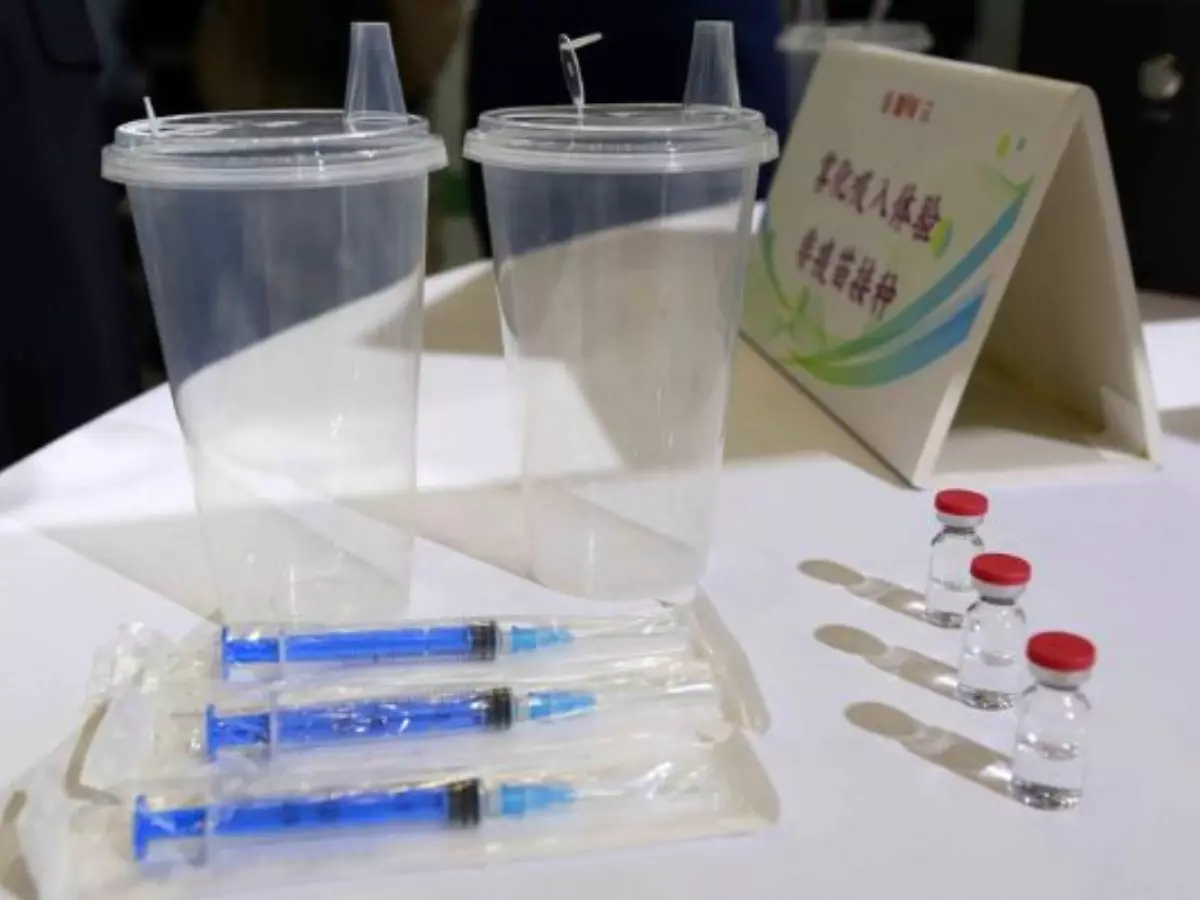World¡¯s First Needle-Free Nasal Vaccine For COVID-19 Approved In China
According to CanSino, the newly developed vaccine starts its work after being inhaled by the recipient -- it stimulates cellular immunity and induces mucosal immunity to strengthen protection against the novel coronavirus without the need for intramuscular administration.

Painful COVID-19 vaccine could soon become a thing of the past as China today has become the first nation to approve a needle-free inhaled version of COVID-19 vaccine, reveals a recent Bloomberg report.
 VCG/Getty images via Bloomberg
VCG/Getty images via Bloomberg
The vaccine dubbed Ad5-nCoV has been developed by Tianjin-based CanSino Biologics and was approved for administration by China¡¯s National Medical Products Administration for emergency use as a booster vaccine, according to the company which revealed this in a statement to the Hong Kong Stock Exchange on Sunday.
The dose is a new variant of CanSino¡¯s one-shot novel coronavirus drug, which also was the first vaccine to undergo human testing in around March 2020. The vaccine was also approved for use in a number of nations including China, Pakistan, Malaysia, Hungary, Mexico after being rolled out for public use in February 2021.
The vaccine¡¯s initial variant was found to be 66 percent effective in preventing the novel coronavirus symptoms and around 91 percent effective against severe disease. The vaccine makes use of a modified cold-causing virus to make the immune system aware of the coronavirus, which is an application similar to those used in Johnson & Johnson and AstraZeneca vaccines.
 Unsplash
Unsplash
According to CanSino, the newly developed vaccine starts its work after being inhaled by the recipient -- it stimulates cellular immunity and induces mucosal immunity to strengthen protection against the novel coronavirus without the need for intramuscular administration.
Other vaccine makers are also working on developing their version of inhaled vaccines to allow more and more individuals to be protected from COVID-19, especially those who have avoided taking the vaccine due to Trypanophobia (fear of needles).
For more in the world of technology and science, keep reading Indiatimes.com.
